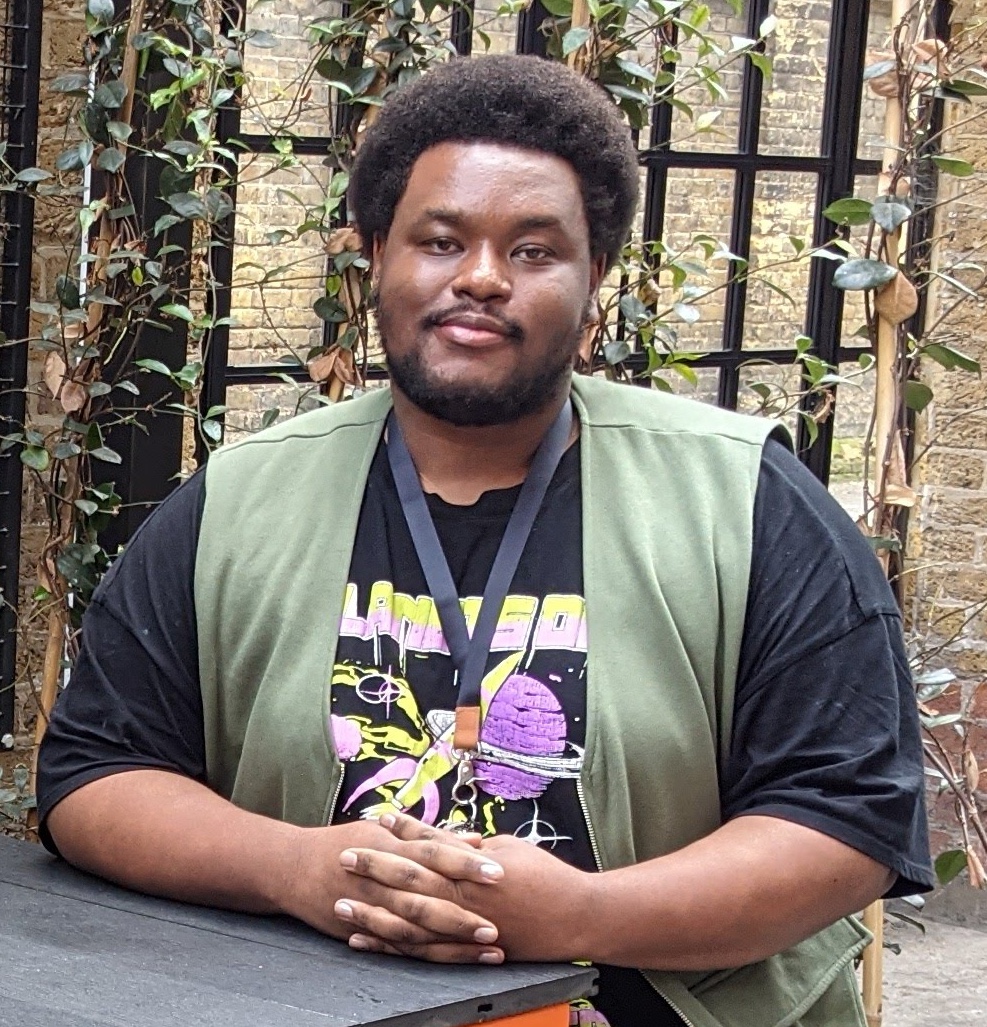
Common Internship Interview Questions
If you’re worried about interviewing, don’t worry, we’ve got your back. Preparation is everything, and we’re here to help you do just that… This is your guide to the most common internship interview questions.
Doing an internship will increase your chances of getting a graduate job after university. Across all the companies that feature in Higherin’s Top Student Employers, 49% of their placement or internship students were offered graduate jobs. This could be you!
This is why it’s very important that you’re prepared for your interview. So read on to discover what questions you might be asked, how to answer them, and some tips and tricks for phone interviews.

Do internships have interviews?
Yes. They do. Most jobs you apply for will include some form of an interview during the selection process.
Internship interviews are not that dissimilar from interviews for placements and graduate jobs. You’ll speak with a single interviewer or a panel, and they’ll ask you questions to gauge whether or not you have the skills, the personality and the aspiration to do the job. They tend to last around 30 minutes, but could be up to an hour long depending on the role.
More and more employers are now using strength-based interviews. This type of assessment is based on what you’re good at (your strengths), rather than your previous experience.
You need to prepare for your interview, so read on to find out common interview questions:
Questions about you
You will most probably get some variant of a question like ‘so tell me about yourself’ or ‘introduce yourself’.
An interviewer will ask this sort of question early on as an ice-breaker and a chance to know more about you.
Talking about yourself is often the hardest thing to do in an interview. The most important thing to remember is not to ramble. Keep it short and aim to stay within one minute max.
Remember, an employer isn’t asking for your life story.
Instead, discuss your personality and your interests. Think about the following…
What kind of person are you?
What hobbies (relevant to the role) are you interested in?
What are you studying right now?
What previous work experience do you have (that is relevant to the role)?
Internship-focused interview questions
Expect loads of questions about the actual internship itself.
It’s the reason why you’re there – so you’ll need to make sure you know why you’re applying, as well as everything about the job you’ve applied for.
Here are some examples…
Why are you applying for this internship?
Employers want to see how motivated you are for the internship in question.
Let them know what you’re looking to get out of it in terms of building on your career and skills. Explore how it could influence your graduate career choices, but steer away from mentioning pay or other job perks.
Instead, you should talk a little bit about the company. We explore this in the next section.
What do you consider to be the top skills for this internship position?
This is where all the pre-interview role research is going to come in handy. Here is your chance to show an employer that you know about the role you’re interviewing for.
Don’t forget to use examples. So, if it emphasises the importance of teamwork, for example, expand upon this and illustrate the impact you think that it could have on the company.
Company-focused interview questions
Internship interview questions that focus on the company are some of the most important you’ll be asked. Let’s take a look at them below…
Why do you want to work for this company?
This is another example of where your research will come in handy. It’s crucial to do some company research pre-interview. Even before applying for the role!
You can look into…
The company’s origins
Company values and vision
Background of founders or senior members of the team you’re hoping to join
Has the company been in the news recently?
Visit their company website and keep an eye out for any news stories in which they’re mentioned.
Why do you want to work in this industry?
When answering this question, relate the experience you think you’d get from that specific company to the wider industry and the reasons why you want to be a part of it.
Describe what first interested you in the industry. Maybe you have wanted to be an engineer ever since you were given your first toy car, or perhaps you attended a particularly interesting course about marketing. Give specific examples.
Skills-based interview questions
When talking about your own skills or experience, be sure to focus on being honest first and foremost.
It’s tempting to exaggerate and make things up during the interview process. After all, a job (or in this case an internship) is on the line, and as a student, you might not have as much previous experience to talk about… but this isn’t a good approach.
Be truthful about your strengths as well as your weaknesses, what you know and what you don’t. You won’t come across as a weak candidate – instead, you’ll be authentic and self-aware.
Below are some of the main questions you’ll be asked about yourself…
Give an example of a situation where you dealt with conflict/a challenge
Interviewers are looking to check if you’re adaptable and able to cope with whatever comes your way.
This doesn’t mean that they’re going to be constantly putting you under pressure or throwing knives at you during the internship (hopefully), but they want to see that you’re a problem solver.
Focus on a specific example in which you took the initiative to resolve a situation.
What's the best team you've been a part of?
Questions related to teams are some of the most common internship interview questions; while they can come in different shapes and sizes, there are a few main things to focus on.
Be sure to talk about how you work alongside others, describing what you’ve learned from past experiences. Try to show how you’re a good fit for that particular team/organisation.
What are your biggest strengths/weaknesses?
Answering a question about your strengths is relatively easy… Just remember to relate them to the role in question and to give specific examples.
The weaknesses question can seem like a bit of a trick, but we promise it isn’t.
Choose a weakness that would not limit you within the role and explore how you’re working to correct it.
All the interviewer is really looking for is self-awareness and self-improvement.
STAR interview technique
Have you heard of the STAR interview technique? STAR is an acronym. It stands for…
Situation
Task
Action
Results
It’s the best method for responding to competency-based questions, such as:
‘Describe a situation in which you took a leadership role’.
The STAR technique helps you shape well-articulated answers based on your previous experience.
Here’s an example so you get the vibe:
‘So George, describe a situation in which you led a team…’
SITUATION: I worked at Waterstone as a sales assistant when we rebranded the store for National Book Week.
TASK: Footfall in the store is very high during National Book Week. My job was to ensure the rebrand was completed in time, and that staff maintained a high level of customer service as footfall increased.
ACTION: To support my manager with the rebrand, I had regular meetings, and stayed in contact with the supplier to ensure themed cardboard cut-outs arrived. I managed my time effectively so that I could oversee the rebrand and continue with all of my shop floor duties at the same time.
RESULTS: Our National Book Week campaign was a great success. Feedback from the rebrand was widely positive; customers were particularly excited about the cardboard cut-outs of famous book characters. There was a 60% increase in sales (year-on-year) for that week, and I was rewarded with Employee of the Month for my efforts.
What questions should I ask at the end of an interview?
Always ask questions. It will show your enthusiasm for the role and company. Here are a couple you could ask:
Where do you think this company will be in the next 3-5 years?
What’s your favourite and least favourite part of your job?
What is the typical career path for someone in this job?
What are the next steps in this interview process?
Are there opportunities for further training?
How will my work performance be measured and reviewed?
How do I prepare for a phone or video interview?
Phone and video interviews are used by employers to reduce a large group of potential candidates to a shortlist.
For this reason, they usually take place before you meet the employer face-to-face.
How to prepare
The employer will arrange a time, just make sure you’re free. Politely ask to rearrange if it clashes with something important.
It might sound a bit obvious but don’t eat or chew gum during the interview. It’s distracting.
Find somewhere quiet so there are no distractions.
Check your phone or laptop is fully charged before they contact you
If you have a rubbish signal or the internet cuts out, don’t panic! Play it cool and treat it as a test of your adaptability
And don’t be scared to ask the interviewer to repeat a question. If you can’t hear or miss something, just ask!
You can refer to your notes/research but be mindful that the interviewer will hear if you’re rustling papers or reciting pre-prepared answers
What should I bring to an internship interview?
Notepad and pen
In case you need to jot something down during the interview. It’s also good for doodling or playing noughts and crosses if you have some time to kill (pre-interview).
CV and application form
The employer will probably print off both your CV and application form, but it’s good to bring them just in case.
Photo ID
Bring your passport or driving licence. The company will need proof that you have the right to work in the UK.
Examples of your work
Bring some examples of your work if you have worked on an exciting project at university or have a side hustle that is related to the internship.
Recyclable bottle of water
Stay hydrated and save the planet at the same time.

I'm Melchi, Senior Content Writer at Higherin and I've been writing for about 100 years now. I first joined Higherin back in 2022 after a six-month internship as a journalist elsewhere, so I know what it's like. Job hunting as a student can be a lot, so I'm here to make sure you have the best info you need when it comes to looking for work experience.



















